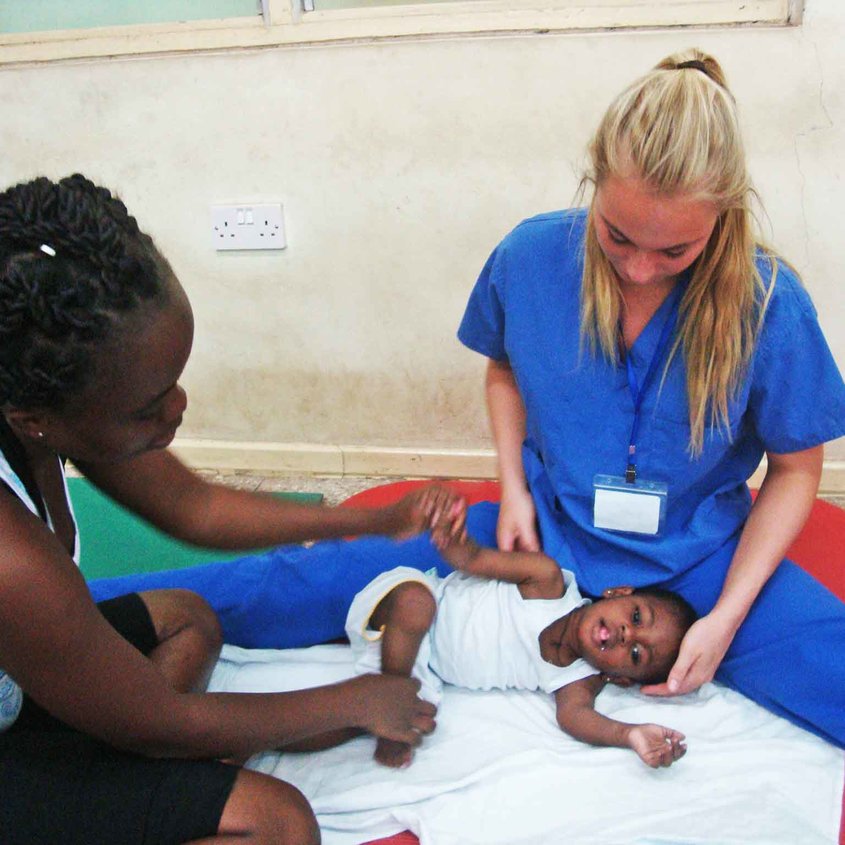Queens University Belfast 2014
My name is Claire, and I’m a final-year medical student from Belfast. As part of our course, we were required to complete a six-week elective in any country doing any speciality. S,o along with some of my fellow medical student friends from home, decided we would use this opportunity to experience a healthcare system in a low-resource country.
We decided to visit Ghana and chose the Work the World programme for the security of safe accommodation and reliable staff to help us get settled into our six-week adventure. Needless to say, it didn’t disappoint.
The house was a great way to get to know other healthcare students and all the staff were helpful in all aspects of life in Ghana. The food for breakfast and dinner was varied and delicious, and our weekly BBQ with lots of crazy dance moves really brought the staff together.
My six weeks of placement were in one of the largest and best-equipped hospitals in Takoradi. I spent my first three weeks in Obstetrics and Gynaecology, then one week in General Surgery, one week in Paediatrics, and my final week in A&E. It took a week to settle into placement and become accustomed to the routine of the hospital. The attitude of most of the staff was quite different from attitudes at home as well. Death, for example, seemed much more readily accepted. This was understandable with the higher morbidity and mortality rates in Ghana. Nevertheless, it was still something that I had to adjust to.
I enjoyed the observations I made during surgical and paediatric ward rounds from the speciality doctors. I learnt a lot about malaria and sickle cell disease, which I had little clinical experience of before going to Ghana.
Many patients present late in Ghana, so although it was often tough to see patients who were very ill and had a poor prognosis, it was an opportunity to see clinical signs I would never have seen at home.
The doctor in charge was happy with our contribution and treated us as part of her team
One memory that will stay with me from my six weeks of placement was a morning in A&E when we had a middle-aged man admitted in an unconscious state due to hypoglycaemia. In the A&E department, he had a two-minute seizure whilst his treatment was being administered, promptly followed by a cardiac arrest. I realized he wasn’t breathing and alerted the doctor, who read the pulse and announced that his heart had stopped. Another final-year student and I led the resuscitation of this patient, taking turns administering CPR chest compressions.
After about twenty minutes, we felt a carotid pulse, and after another ten minutes of ventilation, he began to breathe shallowly on his own. It was one of the scariest experiences I’ve had as a student, but I learnt a lot and know that without our resuscitation and organisation of the team in A&E, he would have died at that time. The doctor in charge was happy with our contribution and treated us as part of her team, which made us feel we had made a slight difference on that occasion.
Overall, I enjoyed my placement at the regional hospital, although I found Paediatrics and A&E my favourite, as I was more involved with patient interaction. As a medical student, you must be proactive and ask questions or risk not taking full advantage of the experience. With a positive attitude, I believe most students who join this programme will enjoy the experience immensely, as did I.
Read more about our Electives in Africa, where you'll discover various options in Tanzania and other exciting countries across the continent.

%2022.webp)
%2014.webp)




